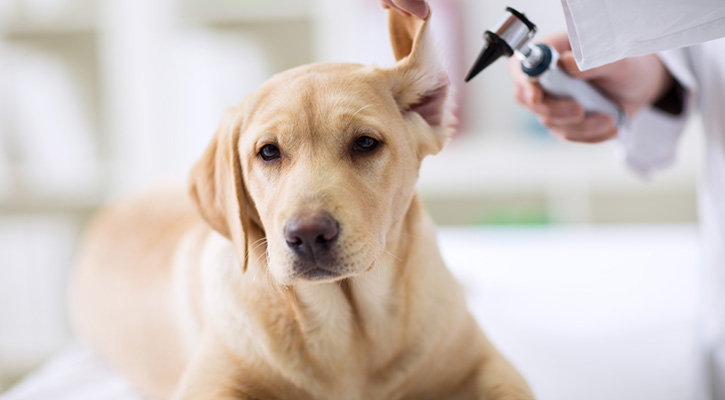
Preventative Care and Vaccinations
Whether they’re a brand new puppy or kitten, a healthy middle-aged pet, or a pet who is reaching their senior years, your companion will receive an annual check-up, which includes a complete physical exam with a thorough evaluation of your pet’s heart, lungs, abdomen, eyes, ears, teeth, skin, skeletal system, and neurological system.
In addition to establishing the health status of your pet, our doctors will discuss options for your pet’s care with you, including vaccines that are due and/or recommended based on your pet’s risk of exposure, as well as heart worm prevention, flea & tick prevention, and nutrition.
We also recommend micro-chipping so that your pet can be found if they should get lost—we use Home Again microchips.
Feel free to address any concerns or questions about your pet at this time, as well. We allow ample time for answering questions or concerns so that you are completely satisfied with what you need to know to help your pet live a healthy life as long as possible.
During your pet’s annual checkup, your veterinarian will:
- Listen to your pet’s heart – Early signs of cardiac disease such as heart murmurs and abnormal heart beat patterns known as arrhythmias can be heard through a stethoscope. Discovering these initial indicators of trouble ahead can lead to identifying and treating the underlying condition before it becomes a more serious health threat.
- Listen to your pet’s lungs – Health issues such as infections, obstructive diseases and other problems can be detected by listening to your pet’s lungs through a stethoscope. The doctor can also assess the overall pulmonary health of your pet.
- Check your pet’s teeth and oral cavity – Examining your pet’s teeth and mouth is an important part of preventing dental disease, which is one of the most common health concerns in pets. Very young animals, such as kittens and puppies, also need to be checked to ensure they are developing an appropriate bite and that they are losing their baby teeth at the right time. We also take the time to discuss proper home dental care with you.
- Evaluate your pet’s vision – Many diseases follow relatively predictable processes and if found early can be more easily treated. Ocular conditions, which can also be prevented through regular care and screenings, are no exception.
- Look into your pet’s ears – As with dental disease, ear disease is relatively common in many types of pets. Issues such as low-grade allergies, swimming or bathing, reactions to certain foods, mites and other parasites can all cause and contribute to otitis or ear disease. Though you may feel this is an area that can be well-handled at home, the fact is that many ear diseases are difficult to detect and may require proper medical treatment.
- Palpate the lymph nodes, abdomen and skin – By feeling the skin, we are looking for unusual lumps or swellings as well as evaluating for skin discolorations, lesions or patterns of hair loss or thinning. These can indicate the presence of more systemic problems, especially metabolic diseases, which most commonly occur in middle-aged animals.
- Palpate joints and muscles – By examining the joints, legs and other areas of the body, we are able to evaluate for swollen joints, decreased muscle tone, variations in muscle size between the limbs, and joint pain. We also observe your pet’s gait for developmental issues. In puppies, we look for early indications of hip, knees or elbow problems. For older pets, we look for signs of arthritis, which can be well-treated and, if found early, can lead to an improved quality of life.
- Lab work – A complete physical includes a heart worm test, parasite screening, and should include a full blood workup in many cases. Not only can a full chemistry panel and complete blood count identify the presence of underlying disease processes, but these tests help create a personalized baseline for your pet should he or she become ill between routine examinations. Additionally, blood work is necessary if your veterinarian recommends a dental cleaning, removal of skin masses, or any other procedure that requires anesthesia.
- Vaccination protocol – Vaccines are tailored to American Veterinary Medical Association guidelines, the lifestyle of your pet, as well as to the diseases he or she is most likely to encounter in our region of the country. In addition to vaccines for diseases such as rabies, distemper, parvovirus and bordetella, we may also recommend vaccines against lyme disease or leptospirosis for your dog, or feline leukemia for your cat in accordance to their risk level. Vaccination plans will be tailored to meet your pet’s needs.
Preventative Care & Vaccinations for Pets in Oak Grove, Minnesota
For more information on preventative care for pets or vaccinations, contact Oak Grove Animal Hospital by calling 763-753-6336 or contact us online. Schedule an appointment with us today!
